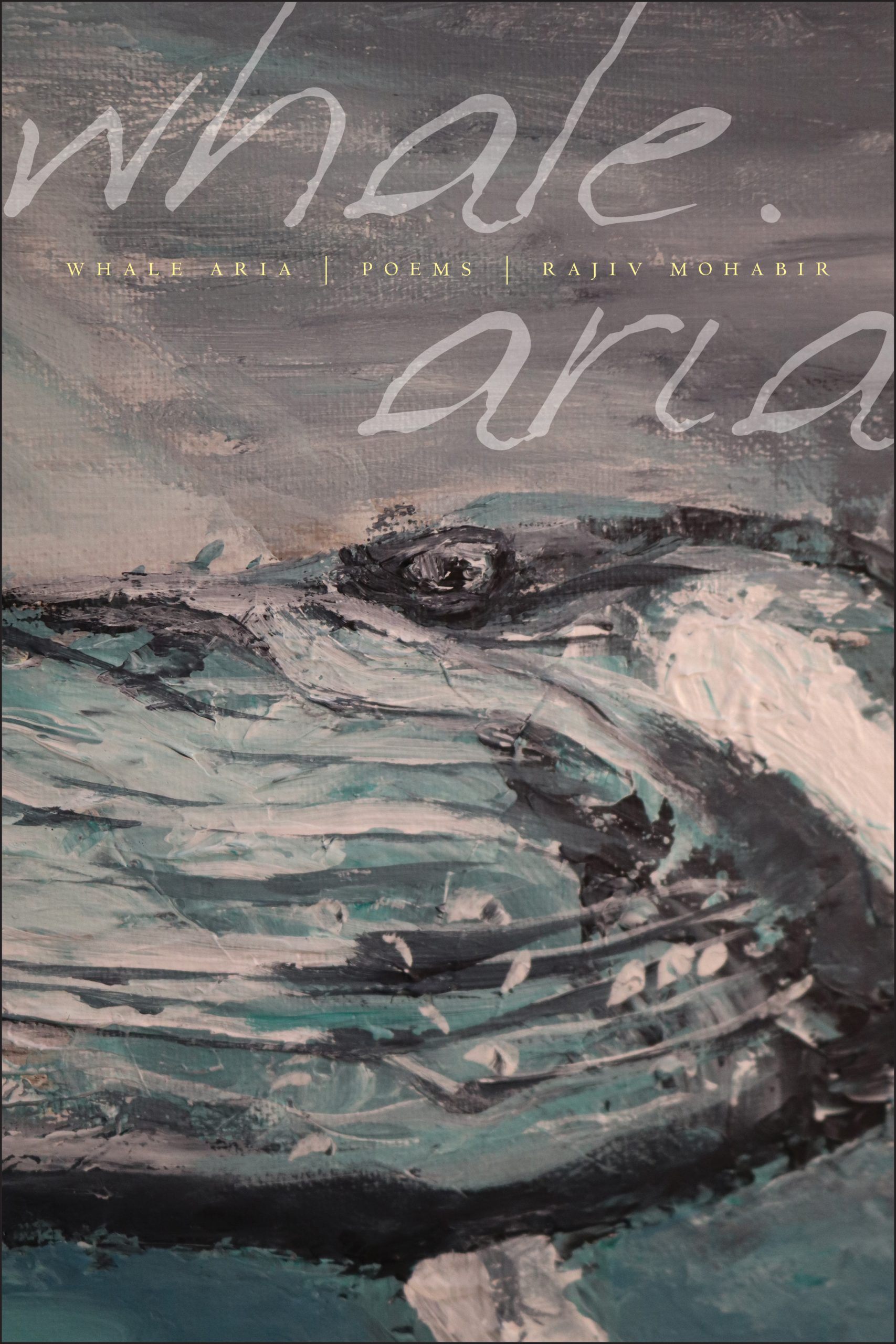
paper • 116 pages • 17.95
ISBN: 978-1-954245-68-6
eISBN: 978-1-954245-69-3
September 2023 • Poetry
Honorable Mention for the Eric Hoffer Award in Poetry
Foreword INDIES Gold Winner for Poetry
“For seasons I was faceless // trying to swallow constellations, / to roll a star-map on my tongue,” recounts Rajiv Mohabir’s speaker in “Boy with Baleen for Teeth.” As formally visionary and acoustically attuned as ever, Mohabir has composed an interspecies opera in Whale Aria. This collection examines the humpback whale as a zoomorphic analog of the queer, brown, migratory speaker breaching these pages; just as a person navigates postcolonial queerness across geopolitical boundaries, traveling from India to Guyana to London to New York to Honolulu, these singular cetaceans wander through disparate waters. Undersea, whales call to one another through their marine music, and, using the documented structure of humpback vocalizations, Mohabir translates the syntax of their songs into poetry. In our search for meaning, in our call and response, kinship resonates; “the echo is amniotic.” “Once you immerse yourself in unending strains / the tones will haunt you: // ghosts spouting sohars you’ve called / since childhood.” Fluid and inexorable as the ocean, Whale Aria articulates the confluence of ecological fate and human history. In “Why Whales Are Back in New York City,” Mohabir notes the coincidence of current events: humpback migration returns to Queens for the first time in a century while the state expedites deportations of undocumented people in the same burrough. The language shared by human and marine creatures in these poems, however, promise that the tides will turn. “Our songs will pierce the dark / fathoms,” Mohabir underscores the eternity of water. “Behold the miracle: // what was once lost / now leaps before you.”
“Immigrant Aria”
there they blow, there they blow, hot wild white breath out of the sea!
–D. H. Lawrence, “Whales Weep Not!”
To swallow new names like krill, dive.
You have few tides before you
return to motion. Once this shrine
was the abyssal plain. Once Empire
shackled you. Once you answered
to monster, to dragon, spewing steam, fire
bellowing in the furnace of your hide,
a migrant captured for brown skin’s
labor. Somewhere inside the darkness
where brews flame, a spirit hovers
over the deep. Once before Adam named
you illegal you snaked, breaking
into air. Spit out his poison, jaw-clap
the swell. With your aft-fin’s trailing edge
churn surface to milk. In the beginning,
Rajiv Mohabir is one of the most brilliant poets writing today. In Whale Aria, he plunges us into the crosscurrents of ecological, documentary, queer, postcolonial, and diasporic poetics. Throughout, Mohabir translates the structure of whale songs into multilingual lyricism and irregular forms. These vocalizations (and invocations) sing across the depth of every page and ping against the shores of our attunement. If you listen deeply to these aquatic songs, you will hear, as whales do, how the ghostly echoes of our more-than-human kin “pierce the dark / fathoms’ and reveal ‘the miracle: // what was once lost / now leaps before you.”
Whale songs are classified into dynamic clicks, whistles, and pulsed calls — and just like these majestic giants, this book also carries desire and loneliness, twinned across these pages in bright and sagacious paths. You will revel at how Mohabir develops wholly new poetic forms from this iridescent ocean language. This book is simply a revelation.
Rajiv Mohabir’s poems make me want to sing. Out loud. And loudly, while naked, swimming in wide nocturnal waters. The music of this work fills the body, the mind, the history-wracked heart. Whale Aria reminds me that song is animal, is queer, is oceanic, is elemental sustenance full of salt, sorrow, memory, tides, semen, dream. These poems dart and dive; they live in radical leaps of lyric imagination as well as in the narrative heft of love ballads. Against the intertwined forces of capitalism, ecological destruction, and colonialism, this book inhales a deep desire for aliveness and exhales a vast humming wave.